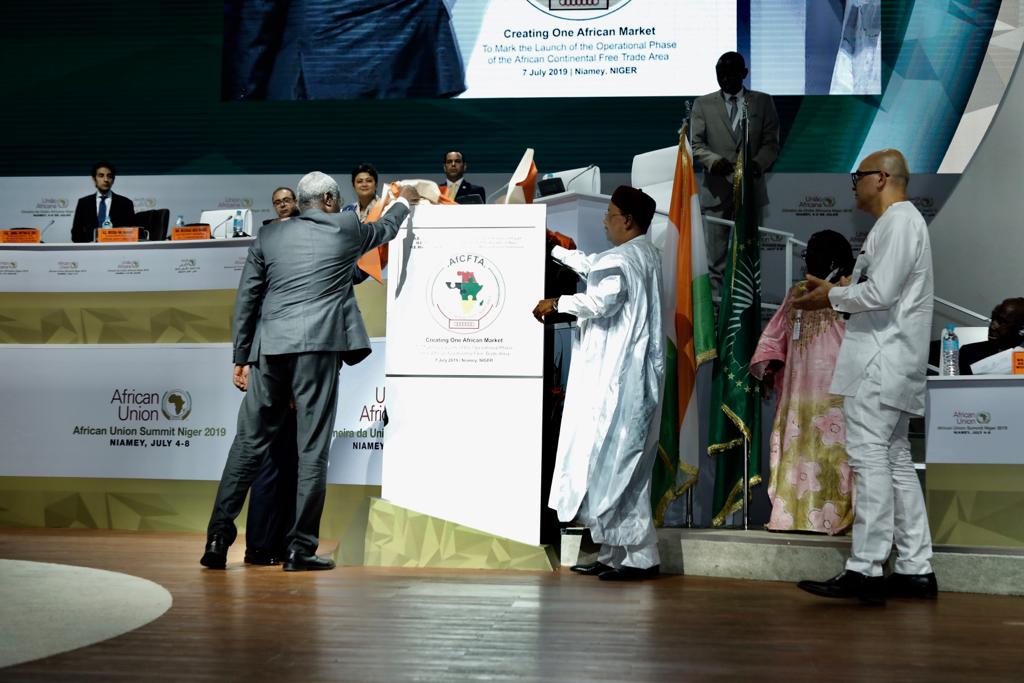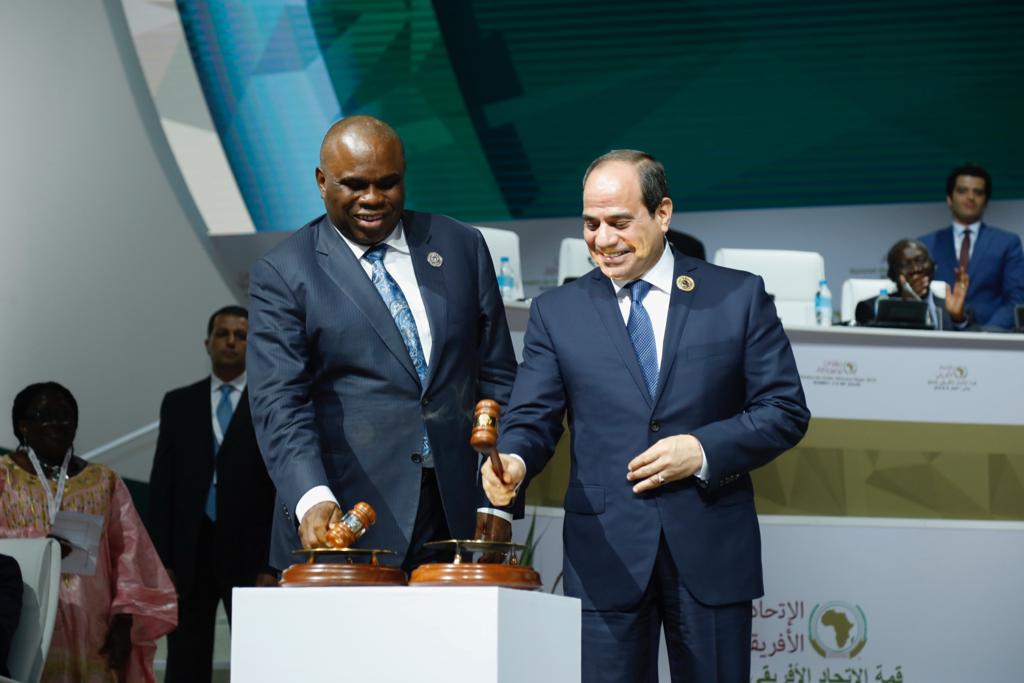July 7 of every year will now be celebrated as the Day of African Integration by the African Union to commemorate the operational launch of the African Continental Free Trade Area (AfCFTA) Agreement, the world’s single largest free trade market.

It was put into force on July 7, 2019, at the African Union (AU) Extraordinary Summit on the AfCFTA in Niamey, Niger, by 54 member states except for Eritrea which is still hesitant. Nigeria and Benin decided to sign the agreement at the last minute after stalling for months due to concerns raised by local businesses.
This milestone has been lingering since the formation of the Organisation of African Unity (OAU) in 1963 which had African independence leaders divided on how Africa should unite.
Ghana’s first president Dr Kwame Nkrumah led the Casablanca Bloc formed after the second All-African People’s Conference in Addis Ababa in 1961 to push for a federation of all African states to be called the United States of Africa. They included the leaders of Algeria, Guinea, Morocco, Mali and Libya.
The United States of Africa concept was opposed by some leaders of other independent African states including Senegal’s Léopold Sédar Senghor and the leaders of Nigeria, Liberia and Ethiopia. They were referred to as the Monrovia Bloc and wanted unity to be achieved gradually while Africa remains a continent of independent states.
Leaders of the 32 independent African states divided between the two blocs honoured the invitation of Haile Selassie in 1963 for the meeting that was a deciding factor for Africa’s unity.
The Casablanca Bloc stood by Nkrumah’s philosophy that “Africa must unite now”, as Egypt’s Nasser, Ahmed Ben Bella of Algeria and Sekou Toure of Guinea denounced “imperialists” and “colonial exploiters” at every opportunity.
The Monrovia Bloc thwarted the possibility of an immediate union with the argument that no matter how good it sounds, unity won’t work unless economic cooperation is achieved.

The host, Haile Selassie, added his voice saying the leaders must move step‐by‐step toward unity as “tradition cannot be abandoned at once” and the disagreement to a union by the people could frustrate progress toward cooperation and development.
A 1964 New York Times report stated that: “Africans would disagree on immediate union because they fear Nkrumah’s driving egocentricity might lead to his becoming the first, and perhaps permanent, ‘president’ of a United States of Africa.”
The Emperor’s astute voice successfully gained the signatures of all the 32 independent African states on the charter that established the Organisation of African Unity on May 25, 1963.

44 years after the attempt to create a Union Government during the founding of the OAU, the opportunity came up once again at the 9th Ordinary Session of the newly formed African Union (AU) in Accra, Ghana.
The agenda was to debate the creation of the Union Government that will lead to the formation of the United States of Africa as adopted by a 2006 study. The study proposed a single African military force, a single currency and a single passport for Africans.
Those in support of the Union Government included Robert Mugabe of Zimbabwe and Muammar Gaddafi of Libya.
The heated debate in Accra failed to institute the Union Government but the heads of state agreed to accelerate political and economic integration, strengthen the organs and institutions of the AU and then set a timeframe to establish a Union Government with the involvement of Africans and the diaspora.

Since then, teams have been set up in 2007, 2008 and 2009 to review the recommendations and give the green light for the transformation of the African Union Commission into the African Union Authority to pave way for the Union Government which will be led by a president, vice president and secretaries.
All the teams have since deferred their assignments and the dream of a United States of Africa still lingers but that of economic integration has been realized with the historic African Continental Free Trade Area (AfCFTA) Agreement.

“The eyes of the world are turned to Africa. AfCFTA will reinforce our negotiating position on the international stage. It will represent an important step,” said Egyptian President and AU chairman Abdel-Fattah el-Sissi at the African Union (AU) Extraordinary Summit on the AfCFTA in Niamey, Niger.
The AfCFTA will create a single continental market for goods and services; enhance free movement of business persons and investments; enhance competitiveness at the industry and enterprise level through exploiting opportunities for full-scale production.
It will also enforce the establishment of the Continental Customs Union and the African customs union, expedite the regional and continental integration processes and exploit opportunities for scale production, continental market access and better reallocation of resources.
With the commitment of all countries, the AfCFTA could bring together the 1.2 billion African population with a combined gross domestic product (GDP) of more than $2.5 trillion to remove tariffs on 90 per cent of goods, with 10 per cent of “sensitive items” to be phased in later.
This agreement was first introduced in January 2012 during the 18th Ordinary Session of the Assembly of Heads of State and Government of the African Union, held in Addis Ababa, Ethiopia. The member states adopted the decision to establish the Continental Free Trade Area by 2017.
The free-trade zone should be operational from July 2020, AU trade and industry commissioner Albert Muchanga told the AFP. Ghana has been chosen as the Secretariat for the AfCFTA.










